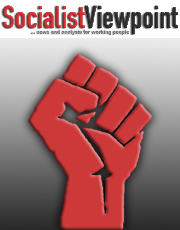Democracy in Swaziland
International youth organization calls for democracy in Swaziland
The International Union of Socialist Youth (IUSY) passed a resolution at its 31st world congress that called for a process that would unban political parties, remove repressive legislation and introduce multi-party democracy in Swaziland.
The resolution, passed on Saturday, also called for an end to the systematic harassment, intimidation and incarceration of political activists and the unconditional release of political prisoners and return of exiles, as well as for the isolation of Swaziland until these demands are met.
The IUSY is an international youth organization with UN ECOSOC (United Nations Economic and Social Council) consultative status. It has 134 member organizations in over 80 countries, including the youth league of banned pro-democracy party PUDEMO (Peoples United Democratic Movement), the Swaziland Youth Congress (SWAYOCO).
A positive step
SWAYOCO President Bheki Dlamini, who attended the IUSY congress in Tirana, Albania, and was elected into the IUSY Presidium as Vice President, saw the resolution and his election as a positive step forward for the struggle for freedom and democracy in Swaziland.
“This shows that our struggle is a just struggle. My election must inspire the youth of Swaziland to stand up for democracy, and I shall use every space to champion the cause of the Swazi people and all oppressed people in the world,” he said.
“The resolution calls for the isolation of the regime and pressure must therefore continue to mount. The USA started with the withdrawal of the African Growth and Opportunity Act in regard to Swaziland. The next step is that the EU that must ensure that Swaziland is not given preferential trade with the EU until Swaziland respects human rights and allows political freedoms.”
Future leaders?
Several former IUSY leaders have gone on to hold office in their respective countries, including former IUSY Secretary General Per Hækkerup, who served as Minister of Foreign Affairs in Denmark in the sixties; former IUSY President Fikile Mbalula, who is the current Minister of Sport and Recreation in South Africa; and former President Jacinda Ardern, who is an Member of Parliament and member of the Shadow Cabinet in New Zealand.
“Resolution on Swaziland
“The meeting held in Bilene Gracia District, Gaza Province, Mozambique resolved that monarchy in Swaziland is oppressive and provides no hope for future democracy and prosperity for the people of Swaziland and therefore demand an immediate end of the Monarchy.
“The Youth Leagues of FRELIMO (The Mozambique Liberation Front), PUDEMO and the ANC (African National Congress) together with the affiliating organization IUSY resolved on the following:
- Immediate targeted economic sanctions against the monarchy of Swaziland, the Cabinet and the Royal family
- Immediate end of the abuse of state resources on the extravagant lifestyles at the expense of the seventy percent of Swazi who live below the poverty datum line
- An immediate end of the oppressive and undemocratic tinkundla1 system of governance
- Monarchic tinkundla must unban political organizations and allow peaceful transition towards Multi-party democracy in Swaziland in order for the Swazi people to determine their own future
- Organizations led under the tinkundla system must be removed from all progressive structures in Africa and the world
- The unconditional release of all political prisoners
- The unconditional return of all political exiles
- Immediate end on the attacks of violence, victimization, intimidation, harassment and threats to the lives of leaders and members of SWAYOCO and PUDEMO
- Immediate end to the abuse of state machinery particularly state security to exercise violence and intimidation against citizens as opposed to protecting them
- Interventions are made against the upward spiraling of HIV/AIDS and other related illnesses in Swaziland which is killing our people who have no hope or access to medical care
- Immediate end to the bias favoring of individuals benefiting from scholarships, limiting access to education and heightening illiteracy in Swaziland
- Immediate end to media bias that advances the oppression of the Monarchy, Cabinet, Royal family and the tinkundla system of governance as opposed to guaranteeing the freedom of expression, media independence and objectivity
- Leaders of Africa and the world to isolate and not recognize King Mswati and demand that democracy is installed in Swaziland”
1 Under the tinkhundla electoral system, introduced in 1978 and amended in 1993 and 2005, the parliament of Swaziland is bicameral. The House of Assembly contains up to 69 members. Ten (including at least five women) are appointed by the monarch, 55 elected by universal adult suffrage from a list provided by the tinkhundla (tribal or community committees) and four women elected by the two houses of parliament (one from each region). The senate has up to 30 members; 10 members (including at least five women) are appointed by the House of Assembly and 20 are appointed by the king (including at least eight women).
http://www.commonwealthofnations.org/sectors-swaziland/government/


